by Joris De Bruyne, CEO at EyeSee
This year’s Davos World Economic Forum was the first time the Market Research (MR) industry has been granted a seat at this high table.
In this article, I will provide you with the key takeaways from my visit to the Insights Lighthouse program, but more importantly, I will try to map the position of our beloved nerdy MR Industry and data-based Insights as essential tools for understanding and shaping the economy of tomorrow that will be greatly influenced, and already is, by … AI.
Davos: the meeting point of extraordinary power
Although Davos appears to be a distant and inaccessible world, my impression was that connecting and reconnecting was one of the core values of the “Rebuilding Trust” theme this year. This is supported by the fact that almost all major sessions were live-streamed. For me, introducing and building connections and relationships started even on the train to Davos, where, after meeting delegates from Sri Lanka, France, … among others, I met with my esteemed colleague Joaquim Bretcha, ESOMAR’s General Director, with whom I would share the panel stage later that day.
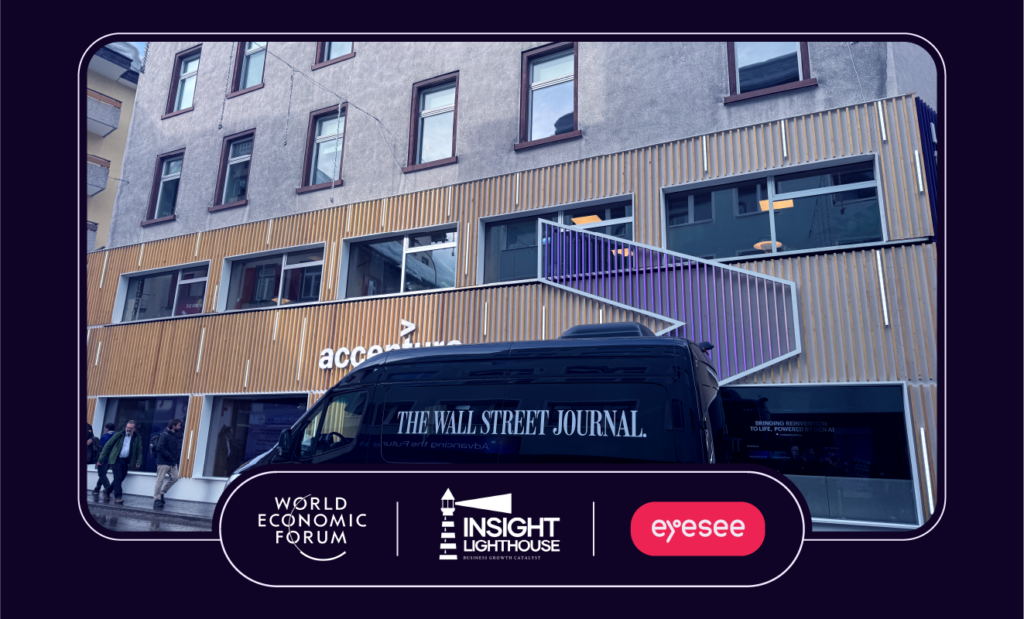
Upon arrival, like two kids in a candy shop full of amazement, Joaquin and I explored the main promenade. While the main forum happens in a “gated castle”, we spotted excitedly along the promenade various pavilions including national / local governments like Digital Saudi, India’s Tamil Nadu and Karnataka, Emirates, … but also major tech firms like Amazon, Google, Salesforce, Palantir, … and academic (MIT, NUS, ETH, …) hosted exhibition pavilions on AI like AI House, Builder AI, and many more. So, even Davos’ landscape sent a clear message: high hopes for the transformation of the economy into a more resilient economy of the future will happen through the techy pathways and neural networks of AI.
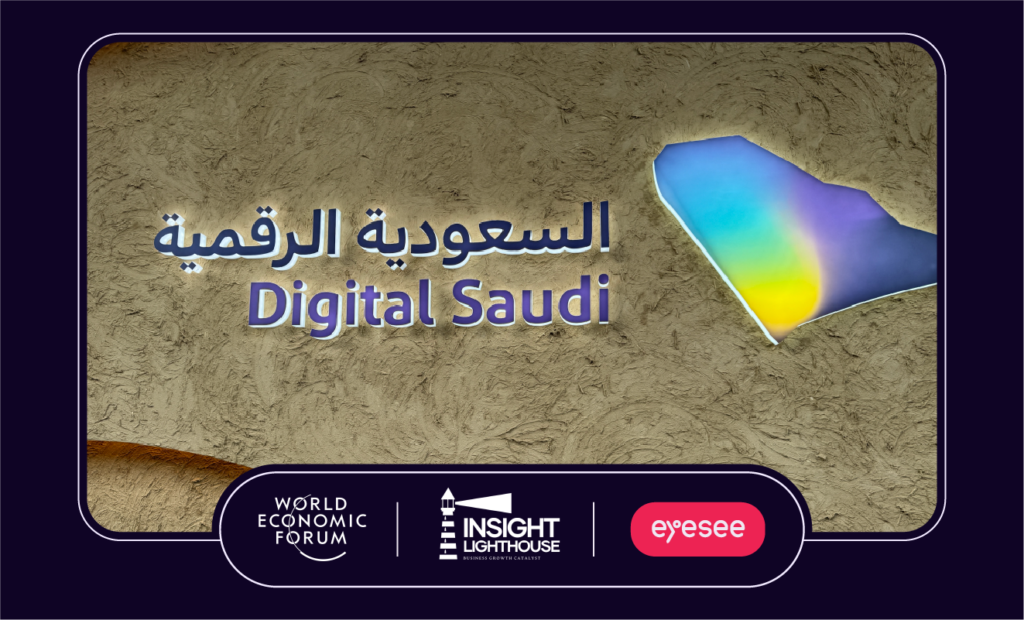
So, one may ask the reasonable question – what is the market and consumer behavior research role in all of this? The mission of MR in general is to always be a “Lighthouse” and navigation tool for businesses that aim for sustainable growth. There are many paths business decision makers can take when fixing the challenges coming in the way of that growth. That is why companies like EyeSee offer insights-based solutions and help understand consumers’ behaviors and true needs. We are here to give the business recommendation based on a deeper and more unbiased understanding of the main business drivers – human needs and desires. If we take this as a framework for thinking about the economy and the global need for finding ways of integrating AI into businesses, both internally and externally, we can see how the connections between AI, MR, and improving business for a more stable economy are being formed.
The Insights Lighthouse illuminating takeaways: Humanizing AI
Thanks to initiative and entrepreneurship of “LinkedIn Insights Top Voice”Dr. Liubov Ruchinskaya (Electrolux & ESOMAR), a group of likeminded and passionate Insights professionals gathered around the “Insights Lighthouse” event.
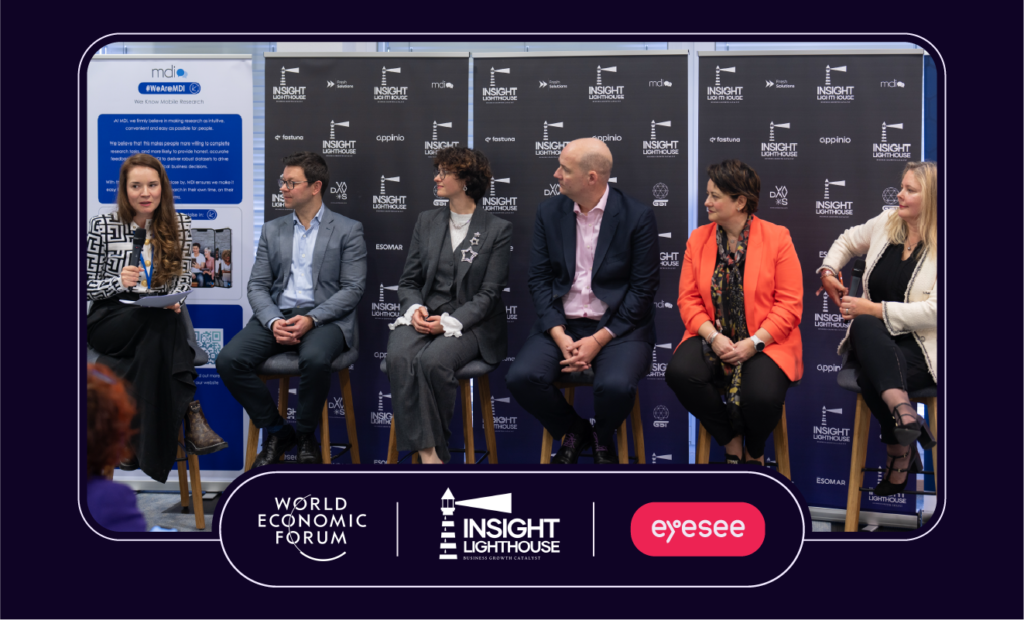
The Insights Lighthouse, Business Growth Catalysts consisted of three panels, all centered around the topic of AI in the service of business growth:
The first session, “Pioneering Business Growth in Today’s AI-driven Economy” delved deeper into the realization that being data-driven alone is not sufficient and that insights play a crucial role in decision-making. Speakers acknowledged the role of AI in making decisions faster but recognized its limitations, especially in providing the “why” behind decisions. Lastly, they sent a message of encouragement to Insights professionals to be bold, proactive, and comfortable with being uncomfortable since it is their role to challenge the old patterns to bring growth forward.
The second panel, “Unleashing Cutting-Edge Innovation and Insights for Corporate Success,” also emphasized importance of creating a culture of innovation through risk-taking, education, diversity, and idea-sharing while reminding us, through examples in FMCG, Pharma and MR Industries, that multidisciplinary teams including different functions and external partners are important for learning and innovation. A sentiment that stood out and resonated with me, by Olga Komleva (Colgate Palmolive) “To spearhead the culture of innovation, leaders need to:Unlearn. Reskill. Transform. Re-Invent.”
And finally, our session “WORKWISE AI: Exploring AI Transformative Power, Risks & Opportunities to Impact the Future of Work” shed light on the impact of AI on internal management, with speakers talking openly about how they use AI to improve their work efficiency and the points where AI simply cannot overtake human input. This deeper understanding of the topic came from the fact that, like EyeSee, most of the companies represented by speakers already leveraged technology in their production processes, so AI is not that unfamiliar ground to begin with.
That is why I agreed with Joaquim’s call for caution against perceiving AI as a god-like entity, which also stressed the importance of human input and creativity. I pointed out the accessibility and ease of use of AI tools, especially for day-to-day operations, by giving an example from EyeSee.
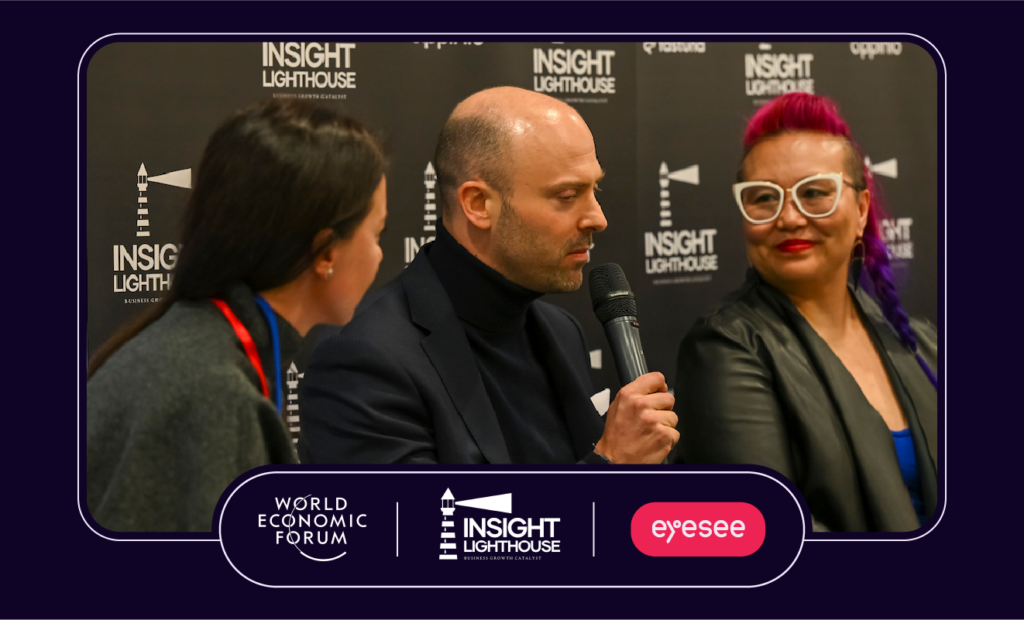
Augmented roles can free up time for creative human lead analysis, which allows to focus on storyline, conclusions & recommendations for the client. If we remember, according to Oxford University, humans are still outperforming AI in terms of understanding the context, adding emotion to that, and just being grounded in common sense.
However, AI should not compromise data quality or accuracy, and we must be aware of AI bias and the need for transparency, ownership, and ethical considerations.
The main takeaways and recommendations from this session, as I see them, are the following:
- Embrace new tools, build bespoke models and foster a culture of experimentation.
- AI is a tool, not a replacement for judgment. Focus on hiring individuals with good judgment.
- Insights professionals have a huge opportunity to leverage their understanding of behaviors and train algorithms effectively.
- Companies must be aware of the need to adopt AI or risk falling behind.
- Insights professionals can shine in combating the fake reality created by AI by ensuring the quality of data.
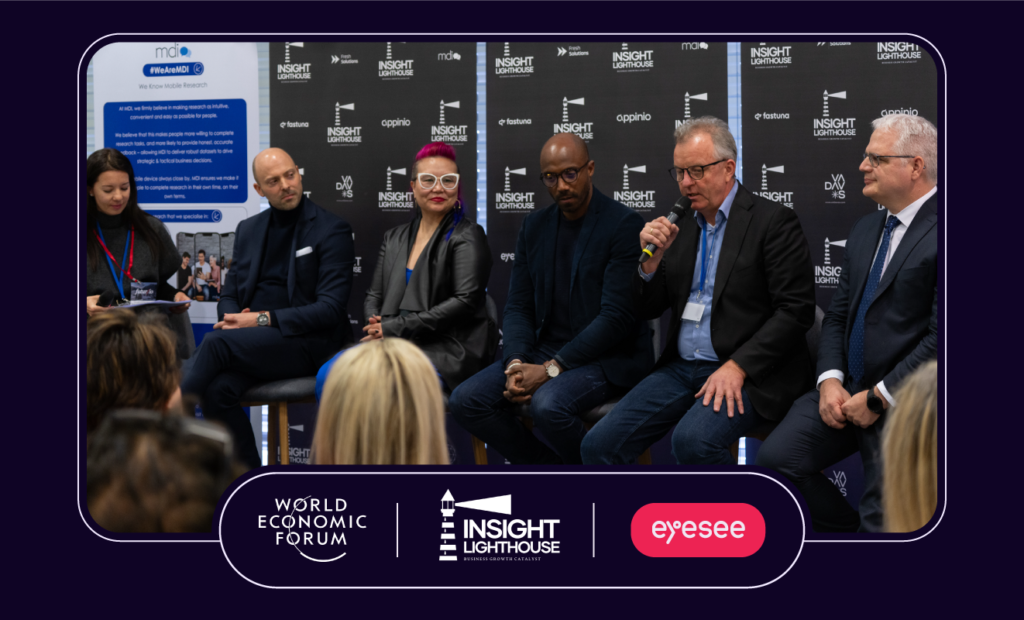
But for me, as the CEO of a scaleup that studies human behavior, I would like to stress that it is not only a chance but also the responsibility of ours and other behavioral market research agencies to use this understanding to train algorithms for AI to serve people and not the other way around.
Speaking of humanness
But now, after we’ve dived so deep into the topic of AI, insights, and business growth, let us catch a breath and go back to a wider perspective. The panel ended with a Q&A of Pranjal Sharma on his best-selling book, “The Next New: Navigating the 5th Industrial Revolution,” giving us a broader perspective and once again pointing out the danger of biases that can result in rising inequality among people. First of all, we shall be aware that biases occur, that’s step nr1! Also, 2024 sounds exciting to him as he predicts that Mobile AI will be the “new thing.” Last but not least, he reassured us that MR is an “influential industry” which allows us to connect with consumers and generates the key input for corporations to work on their social impact. We have our role to play!
That is why a visit to the Advancing Equality Together Center was precious. We were hosted by wonderful Kim Flanery-Rye – Founder, Principal DEI and Culture Practitioner at INCLUSION EQUALS and over a drink at the terrace we debated further and were reminded once again that a good leader sets the example by being: Empathetic, Compassionate, Kind & Paves the way.
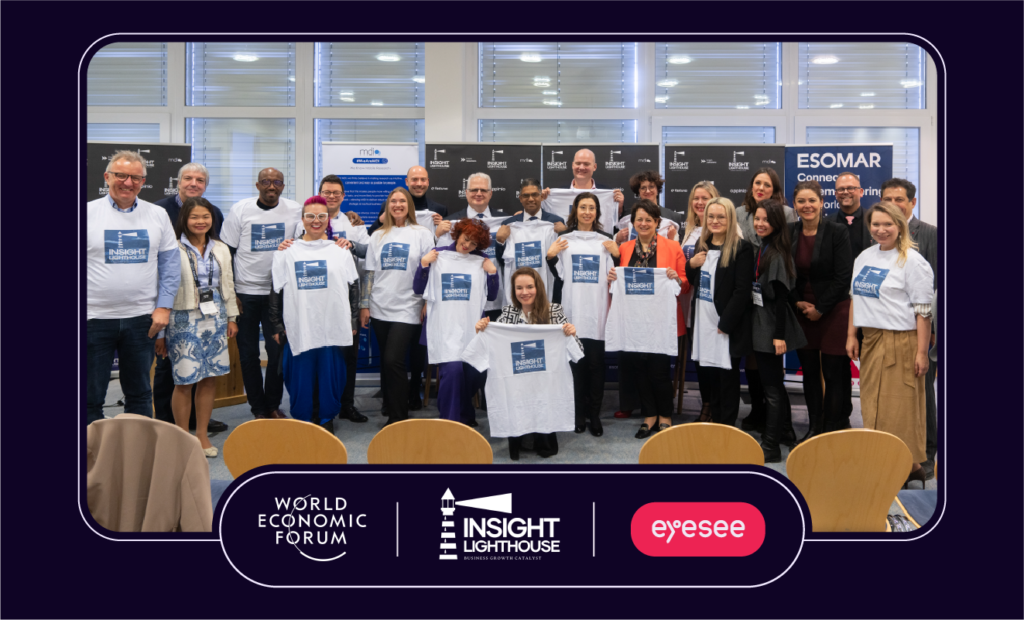
And, as the cherry on top, thanks to Jean de Gheldere, we were able to join the evening session at the Belgium house which hosted a speech of Prime Minister Alexander De Croo and an interesting conversation between John Blood (AB Inbev) & Adrian Cooper (Oxford Economics) on the Economic contribution of the Beer industry.
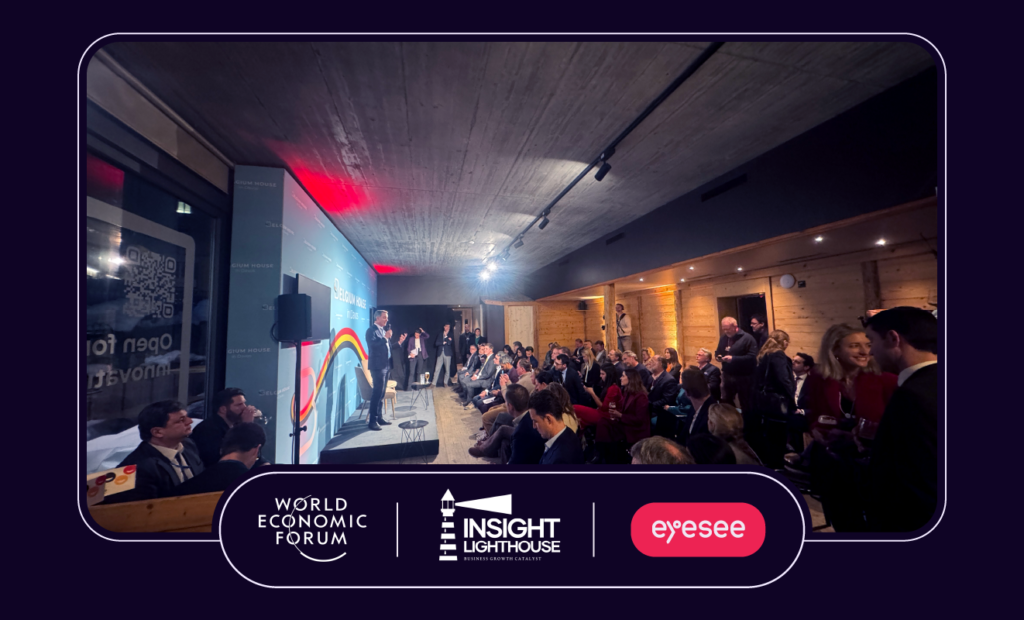
Always good to reconnect with my homeland and be reminded that Belgium is where EyeSee’s story began, and it is now expanding globally, with Davos as one of its futures regularly visited destinations along the way!
Interested in reading more about Eye See? Here is an article about our 11-year-old evolution and what we learned from it.
